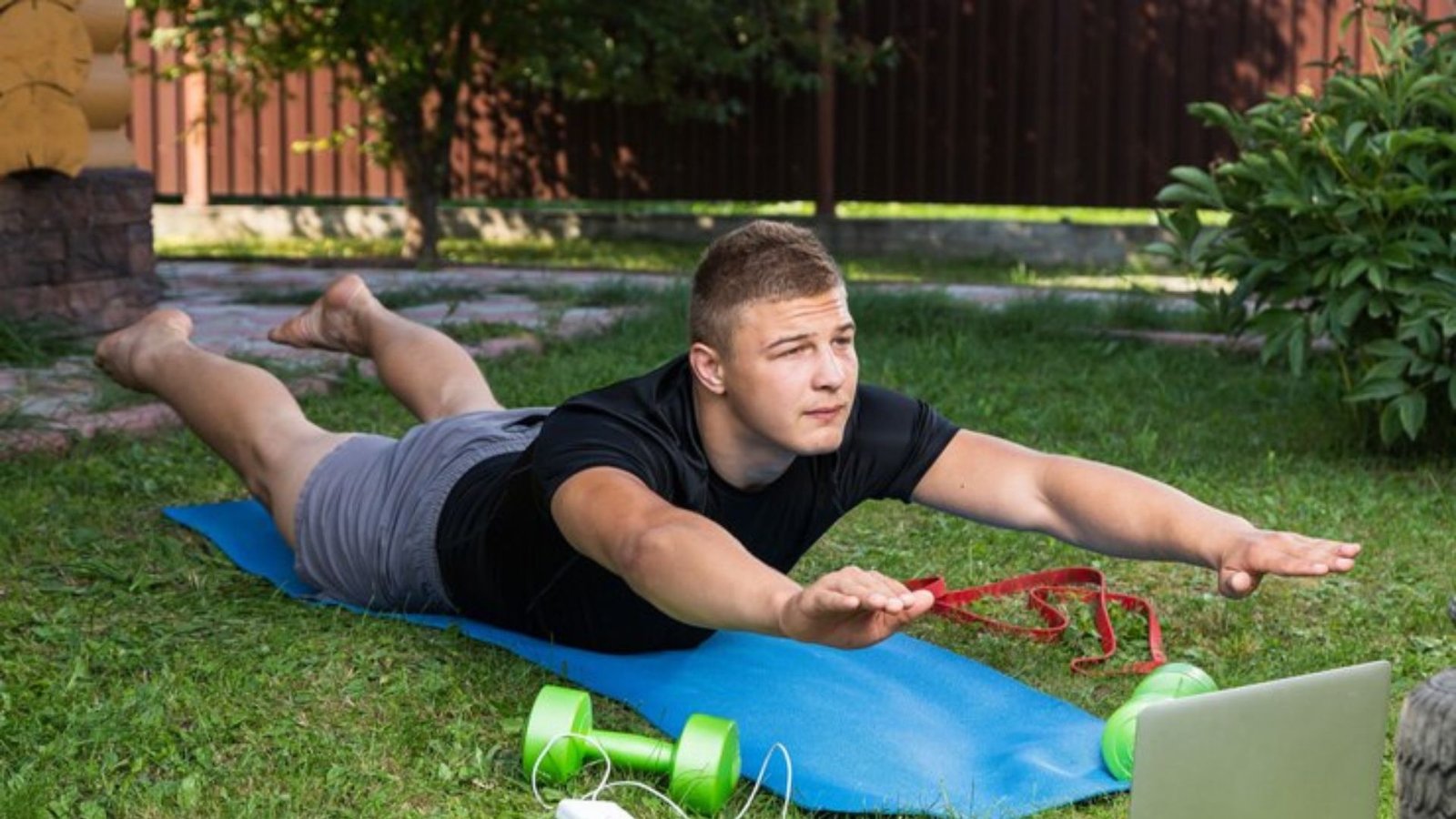In today’s fast-paced world, mental wellness is just as important as physical health. The demands of work, social obligations, and personal stressors can often leave us feeling overwhelmed. One of the best ways to combat this mental strain is through regular exercise. Quick daily fitness routines for mental wellness not only help to release tension but also improve mood, reduce anxiety, and enhance overall mental clarity.
You don’t have to commit to hours of exercise each day to reap the benefits. Short, consistent routines can make a significant difference. In this article, we’ll explore various quick fitness routines that can help you maintain mental wellness. These exercises are simple, effective, and easy to fit into your daily schedule.
The Importance of Fitness for Mental Wellness
Physical activity has long been linked to better mental health. When we exercise, our bodies release endorphins, the “feel-good” hormones that promote happiness and reduce stress. But the benefits don’t stop there. Exercise can also:
Boost Self-Esteem: Regular physical activity enhances confidence, as it improves body image and physical strength.
Reduce Anxiety and Depression: Exercise has been shown to decrease levels of anxiety and depression by promoting the release of serotonin and dopamine.
Improve Sleep Quality: A good workout can improve the quality of your sleep, leading to better mental focus the next day.
Enhance Focus and Clarity: Engaging in physical activity can improve cognitive function and concentration, helping you stay sharp throughout the day.
By integrating fitness into your daily routine, you can not only maintain a healthy body but also nurture your mental well-being. The following quick fitness routines can be performed daily, with each focusing on improving your mental wellness.
Short and Effective Fitness Routines for Mental Wellness
Morning Stretching Routine
Stretching in the morning is one of the best ways to kick-start your day. It increases blood flow, reduces stiffness, and releases tension in the body. A quick 5-10 minute stretching routine can help clear your mind and prepare you mentally for the day ahead.
How to Perform:
Neck Stretch: Gently tilt your head to each side to stretch your neck.
Shoulder Rolls: Roll your shoulders forward and backward in a circular motion.
Chest Opener: Interlace your fingers behind your back and gently lift your arms to open up your chest.
Standing Forward Fold: Stand with your feet hip-width apart, then bend forward and reach for your toes.
Cat-Cow Stretch: On all fours, alternate between arching and rounding your back to stretch the spine.
Yoga Flow for Mental Clarity
Yoga is not only beneficial for physical health, but it also calms the mind and helps to focus on breathing, which is crucial for reducing stress. A short yoga session lasting 10-20 minutes can enhance flexibility and mental clarity.
How to Perform:
Mountain Pose (Tadasana): Stand tall, grounding your feet and reaching your arms upward.
Downward Dog: From all fours, lift your hips to form an inverted V shape, stretching your back and legs.
Warrior II: Step into a wide stance, extend your arms parallel to the ground, and bend your front knee.
Child’s Pose: From a kneeling position, fold forward, resting your forehead on the mat.
Seated Forward Fold: Sit with your legs extended and reach for your feet to stretch your hamstrings and lower back.
High-Intensity Interval Training (HIIT)
HIIT is a quick and effective way to boost your mood and burn calories in a short amount of time. HIIT workouts involve alternating between periods of intense exercise and short recovery periods. A 10-15 minute HIIT workout can significantly improve your mental wellness by releasing endorphins and reducing stress.
How to Perform:
Jumping Jacks: Perform for 30 seconds, then rest for 15 seconds.
Mountain Climbers: Perform for 30 seconds, then rest for 15 seconds.
Squat Jumps: Perform for 30 seconds, then rest for 15 seconds.
Plank: Hold for 30 seconds, then rest for 15 seconds.
Repeat the circuit 2-3 times to complete the workout.
Mindful Walking
Walking is a simple but effective form of exercise that can be done anywhere. Taking a brisk 10-15 minute walk outside can clear your mind, reduce anxiety, and improve your mood. The combination of physical movement and the focus on your surroundings helps you stay present and focused.
How to Perform:
Find a quiet, peaceful area, preferably with natural surroundings.
Walk at a moderate pace, paying attention to your surroundings, your breathing, and the rhythm of your steps.
Focus on the sensations in your body, the feeling of your feet touching the ground, and your breath as you walk.
If possible, walk barefoot to further connect with the environment and enhance mindfulness.
Breathing Exercises
Breathing exercises are a powerful tool for calming the mind and reducing stress. Controlled breathing can help activate the parasympathetic nervous system, which is responsible for the body’s relaxation response. A simple 5-minute breathing routine can help ground you and improve mental focus.
How to Perform:
Box Breathing: Inhale for 4 seconds, hold for 4 seconds, exhale for 4 seconds, and hold again for 4 seconds. Repeat for 5 minutes.
4-7-8 Breathing: Inhale for 4 seconds, hold for 7 seconds, and exhale for 8 seconds. Repeat for 5 minutes.
Diaphragmatic Breathing: Place one hand on your chest and the other on your abdomen. Breathe deeply, expanding your abdomen rather than your chest.
Bodyweight Strength Routine
Bodyweight exercises like squats, lunges, and push-ups are an excellent way to build strength and improve your physical fitness, which in turn supports mental wellness. These exercises also release endorphins, promoting a feeling of accomplishment and boosting mood.
How to Perform:
Squats: Stand with your feet shoulder-width apart and lower your hips as if you’re sitting in a chair. Stand back up.
Push-Ups: Begin in a plank position and lower your body towards the ground, then push back up.
Lunges: Step one foot forward, bending both knees to 90 degrees, then return to standing.
Plank: Hold a plank position on your forearms, keeping your body in a straight line.
Dance It Out
Dancing is a fun and energizing way to lift your spirits and get your body moving. Even a quick 10-minute dance session can significantly improve your mood and mental clarity. Put on your favorite music and let loose!
How to Perform:
Choose upbeat, energetic music that makes you feel good.
Dance freely, letting your body move to the rhythm of the music.
Focus on the joy of movement, not on any specific technique or form.
Conclusion
Incorporating quick daily fitness routines into your life can have a profound impact on your mental wellness. Regular physical activity helps to reduce stress, improve mood, and increase mental clarity. Whether you prefer a morning stretch, yoga, high-intensity training, or mindful walking, each of these routines can be done in a short amount of time and still deliver significant benefits.
ALSO READ:Mental Health Benefits of Yoga for Beginners
FAQs
How often should I do these fitness routines for mental wellness?
For optimal results, aim to incorporate at least 10-20 minutes of exercise into your daily routine. Consistency is more important than intensity, so focus on making exercise a habit.
Can I combine different fitness routines in one day?
Absolutely! You can combine yoga with a short HIIT workout or follow your morning stretch with a brisk walk. The key is to find what works best for you and your schedule.
Do I need any special equipment for these exercises?
No, most of these routines can be performed with little to no equipment. A yoga mat may be helpful for comfort during stretching and yoga, and a set of comfortable shoes is recommended for walking or HIIT.
What if I don’t have a lot of time to exercise?
These routines are designed to be quick and efficient. You can start with as little as 5-10 minutes per day, and gradually increase the duration as you get more comfortable.
Will these routines help with anxiety and depression?
Yes, regular physical activity is known to reduce symptoms of anxiety and depression. Exercise helps to release endorphins and other mood-boosting hormones, which can have a positive effect on mental health.

